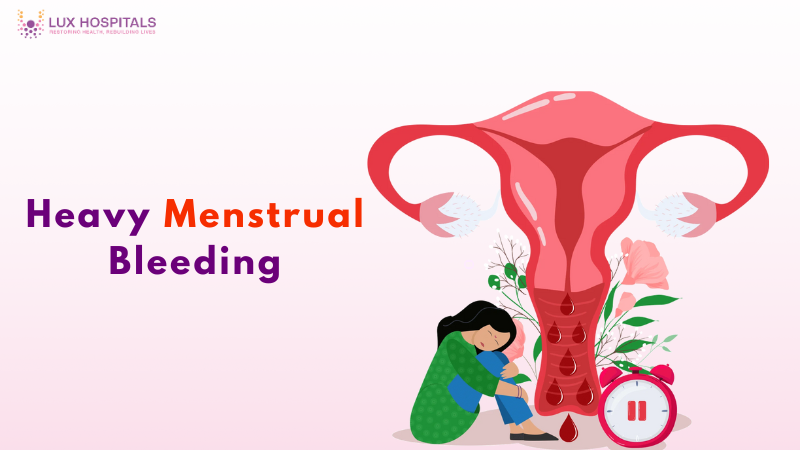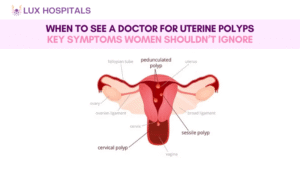Understanding Heavy Menstrual Bleeding

Menstrual bleeding is a natural part of every woman’s reproductive cycle. However, when bleeding becomes too heavy, too prolonged, or severely disrupts daily life, it may signal an underlying health concern. This article explores what qualifies as heavy menstrual bleeding, its common causes, how to differentiate normal from abnormal patterns, and when to seek medical advice. Understanding these details can help you take control of your reproductive health and make informed decisions about treatment options.
What is Considered Normal Menstrual Bleeding?
Normal menstrual bleeding typically lasts two to seven days and happens every 21 to 35 days. The average blood loss is about 30 to 40 millilitres, roughly equivalent to 6 to 8 teaspoons. A healthy period may include some clotting, mild cramping, and moderate flow, with the heaviest bleeding usually on the second or third day. However, spotting between cycles or excessive flow may point to a more serious condition.
What is Heavy Menstrual Bleeding?
Heavy menstrual bleeding, also known as menorrhagia, involves losing more than 80 millilitres of blood during a single cycle or bleeding that lasts longer than 7 days. If you need to change your pad or tampon every hour, wake up during the night due to heavy flow, or pass large clots (larger than a quarter), your bleeding may be considered abnormally heavy. This condition can cause anaemia, fatigue, and significantly interfere with daily life.
Common Causes of Heavy Menstrual Bleeding
Several health issues can contribute to heavy menstrual bleeding, including:
- Hormonal imbalances: Conditions like polycystic ovary syndrome (PCOS) and thyroid conditions might cause hormone imbalances and lead to excessive bleeding.
- Uterine fibroids or polyps: These benign growths can increase bleeding during menstruation.
- Adenomyosis: When the lining of the uterus develops into the muscular wall, it causes heavier, more painful periods.
- Bleeding disorders: Von Willebrand disease or other clotting issues can result in prolonged bleeding.
- Medications: Blood thinners or hormonal birth control methods may influence menstrual flow.
When to See a Doctor for Heavy Menstrual Bleeding?
If your menstrual bleeding affects your quality of life, causes you to miss work or school, or leads to symptoms of anemia such as fatigue or dizziness, you should consult a doctor. It’s also important to seek help if your bleeding lasts more than a week, requires double protection (tampons and pads), or if you pass huge clots. A healthcare provider can perform tests like ultrasounds or blood work to diagnose the cause.
Diagnosis and Tests for Heavy Menstrual Bleeding
Doctors diagnose heavy menstrual bleeding through medical history, physical examination, and diagnostic tests. These may include:
- Pelvic ultrasound: To check for fibroids, polyps, or other structural issues.
- Blood tests: To rule out anemia or clotting disorders.
- Endometrial biopsy: To evaluate abnormalities in the uterine lining.
- Hysteroscopy: A procedure that allows direct viewing of the uterine cavity for polyps or fibroids.
For treatment to be effective, a precise diagnosis is essential.
Treatment Options for Heavy Menstrual Bleeding
The treatment of heavy menstrual bleeding depends on its underlying cause, severity, and your overall health. Standard treatment options include
- Medications: Hormonal therapies (e.g., birth control pills), NSAIDS (like ibuprofen), and antifibrinolytics can reduce bleeding.
- Intrauterine device (IUD): The hormonal IUD can significantly reduce menstrual flow over time.
- Surgical procedures: Options like endometrial ablation, myomectomy, or even hysterectomy may be considered in severe cases.
- Lifestyle changes: Managing stress, maintaining a healthy weight, and treating underlying medical issues can be beneficial. Regulate bleeding.
How Heavy Menstrual Bleeding Affects Daily Life?
Heavy menstrual bleeding can be more than a physical inconvenience—it can impact emotional well-being, social life, productivity, and self-confidence. Constantly worrying about leaks or the need for frequent bathroom breaks can make it hard to concentrate at work or school. Long-term heavy bleeding can also lead to chronic anaemia, causing fatigue, weakness, and poor focus, which can affect one’s overall quality of life.
Natural Remedies and Self-Care Tips
For some women, natural strategies may help manage menstrual bleeding, mainly when used alongside medical treatments:
- Dietary iron: To replenish iron lost during heavy periods.
- Herbal supplements: Include ginger, turmeric, or chasteberry (under medical supervision).
- Hydration and rest: To counteract fatigue and maintain energy.
- Heat therapy: Warm compresses can relieve cramps often associated with heavy flow.
- Yoga and gentle exercise: Can help regulate hormonal levels and reduce stress.
Prevention and Long-Term Management
While not all causes of heavy menstrual bleeding are preventable, regular gynecological exams and a healthy lifestyle can reduce the risk. Keeping a menstrual diary to track cycle length, flow intensity, and symptoms helps in early detection. Also, treating underlying medical issues promptly and following through with prescribed medications or therapy plans can prevent long-term complications.
Conclusion
Heavy menstrual bleeding is a common but frequently misunderstood condition that can significantly affect your life. Understanding what is and is not typical is the first step in taking control of your menstrual health. You can find relief and enhance your quality of life by knowing the causes and getting medical assistance when needed. Don’t ignore the signs—speak with your healthcare provider if you suspect your bleeding is heavier than it should be.
Frequently Asked Questions
Heavy menstrual bleeding is defined as soaking for a few hours at a time through a pad or tampon in a row, bleeding for more than seven days, or passing large blood clots. It often disrupts daily activities and may be accompanied by symptoms of anemia, such as fatigue or dizziness.
Because stress alters hormone levels, it can indirectly cause heavy monthly flow. A rise in cortisol, a stress hormone, can disrupt the balance of progesterone and estrogen, resulting in heavier or irregular periods.
The cause of heavy menstrual bleeding determines the course of treatment. Common first-line treatments include hormonal medications like birth control tablets or an IUD. NSAIDS and antifibrinolytic drugs are examples of non-hormonal alternatives
While benign conditions cause most cases of heavy menstrual bleeding, it can occasionally signal endometrial or uterine cancer, especially in women over 40. If the bleeding is sudden, persistent, or accompanied by other symptoms like pelvic pain or weight loss, medical evaluation is crucial.
Yes, diet can influence menstrual bleeding patterns. A diet low in iron can worsen symptoms of anemia caused by heavy bleeding, while a high intake of processed foods may contribute to hormonal imbalances. Nutrient-rich foods like leafy greens, lean meats, and whole grains support hormonal health and blood production.




















